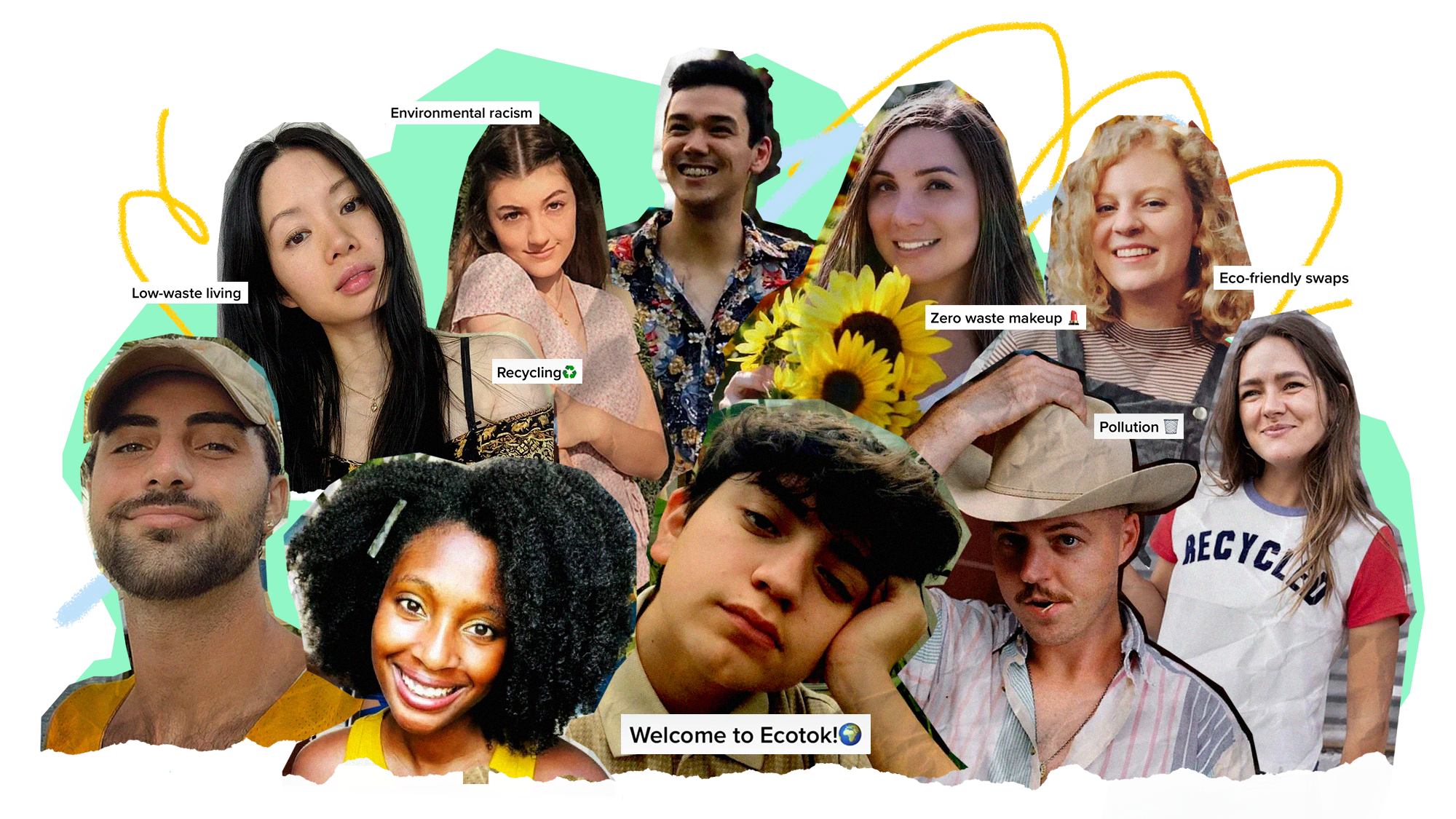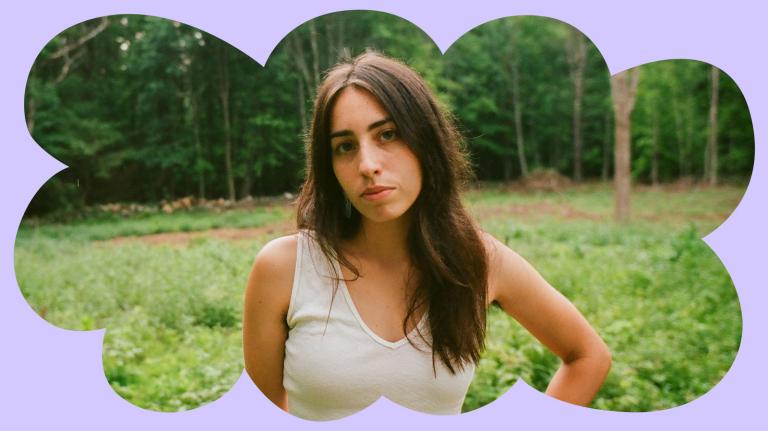TikTok is many things at once: A video-sharing app for teens to swap viral dance routines. An endless generator of comedic content. And more recently, a platform for political protest and debate among Gen Z, thanks in no small part to the users who claim they sabotaged a Trump campaign rally in June.
EcoTok, a collective of 17 U.S.-based TikTok influencers, stays away from partisan drama and embraces something its creators hope is more productive: environmental action. Launched in the spring by Las Vegas high school student Alex Silva, 18, who uses the handle EcoFreako, the group posts sometimes serious, but more often silly videos to a shared account — so far they’ve racked up 1.1 million likes among 173 videos. One offers tips on composting, while others celebrate Black environmentalists, tout the merits of biodiverse lawns, and call out politicians for failing to address climate change.
Creators range from so-called “moss bros” to sustainable beauty gurus and climate scientists, and they have over 78,000 followers. In October, the collective was enlisted to help promote Countdown, a TED-sponsored global climate-themed event.
Silva has been making TikTok videos about low-waste living since 2019. In April, amid the coronavirus lockdowns, he noticed an uptick in climate content. He wanted to help like-minded creators pool their followers and collaborate on ideas for funny, relatable videos that inspire young people, who make up the majority of the app’s 850 million users. “I want our audience to know that while we need to put pressure on corporations and governments to stop polluting, it’s important that individuals do our part for the planet, too,” Silva says.
Youth activist and Earth Uprising founder Alexandria Villaseñor, 15, says she scrolls through TikTok all the time to de-stress, and loves that EcoTok uses the app’s massive viewership to grow the climate movement. “Social media is how you get more people involved. It’s how you reach other parts of the world,” Villaseñor, a 2020 Grist 50 Fixer, says. “A lot of people don’t find protesting accessible, so online platforms are great for sharing creative ideas for other kinds of activism and for educating others.”
Fix asked these influencers to share their favorite videos — the ones that help cut through the pranks and memes to get to the heart of green matters.
Say no to styro
Since January, Silva and his high school environmental club have been campaigning to ban Styrofoam trays in his school district’s cafeterias. Here, he asks followers to sign the petition; in a follow-up video, he answers a commenter’s question about how students around the country can take up the same cause in their own schools. He has collected nearly 3,000 signatures so far.
Nobody’s perfect
Alaina Wood, an environmental planner in northeast Tennessee, is an expert in all things solid-waste disposal — and in easing people’s eco-guilt. She made this video to discourage people from thinking they need to be perfect environmentalists in order to make a difference — yes, even if you drive a lot. Or like long showers. Or buy the occasional picture frame from Amazon.
Talking trash
New York college student Henry Ferland, aka “traashboyyy,” films himself picking up litter in his neighborhood, often rating his unusual finds and completing challenges assigned by his followers — like picking up 20 pieces of trash for a fan’s 20th birthday. In this video for EcoTok, he tells viewers about the Great Pacific Garbage Patch, an island made of 1.8 trillion tons of discarded plastic and other trash and formed by swirling ocean currents. Trash Boy’s call to action? Reduce your own consumption and ask your local government to consider single-use plastic bans.
Glam goes green
Christine Lan is an actor in Montreal and runs her own zero-waste cosmetics company. She’s EcoTok’s resident beauty guru, giving tutorials for DIY makeup, like lip stain made from beets, and mascara made from charcoal and aloe vera. In the above video, Lan dispels the myth that living low-waste needs to be totally plastic-free, explaining how people can keep trash out of landfills by upcycling food containers, like Nutella jars, to hold their homemade beauty products.
What’s in a watt?
In addition to spotlighting underrated Black women leaders in the climate movement, Doria Brown, a municipal energy manager in New Hampshire, makes energy efficiency less of a snooze fest by breaking down little-understood concepts. Here, she explains what a kilowatt hour really means — so that people can better understand what it takes to lower their carbon footprints.
If you want to dive head first down the EcoTok rabbit hole, check out the rest of their videos. And while you’re at it, pick up some litter — it’ll make Trash Boy proud.



